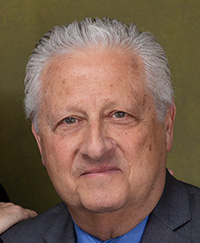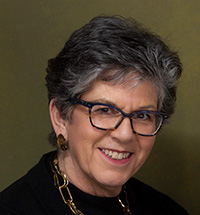
David Cooper
Co-founder, Eli’s Place

Deborah Cooper
Co-founder, Eli’s Place
Over 160,000 young adults in Ontario live with serious mental illness, and traditional six-to-eight week short-term clinical psychotherapy treatments are not enough to help individuals properly rehabilitate.
In recent years mainstream media has done an excellent job raising awareness and removing the stigma associated with mental illness. However, there is a gap in long-term treatment and recovery care offerings, especially for young adults. Over 160,000 young adults in Ontario live with serious mental illness, and traditional six-to-eight week short-term clinical psychotherapy treatments are not enough to help individuals properly rehabilitate. With 1 in 24 young adults facing serious mental illness, the time to act is now.
After the loss of their son Eli, founders David and Deborah Cooper formulated a vision — to create Eli’s Place, Ontario’s first rural long-term residential treatment program for young adults living with serious mental illness. To help turn their vision into a reality, they have recruited an impressive team of leaders from the health care and business sectors.
After an exhaustive global review of long-term rural programs and models available, the team decided on the 108- year-old Gould Farm model as the foundational standard. This farm-based model will provide a continuum of therapeutic care in a setting that allows the time, space and community needed to develop a sense of purpose, learn life skills and achieve stability.
Employment rates of the Gould Farm program participants went from 14 percent at departure to 81 percent, 18 months after participation. Only 5 percent had a re-hospitalization, and 100 percent were in stable housing 36 months after participation. Receiving transitional support following residency at the farm is the key to long-term independent living for those young adults affected by severe mental illness.
Led by Board Chair and Registered Psychotherapist Carol Cowan-Levine, the team is working hard to secure a property for Eli’s Place. This treatment center program will enable the transitional care required for long-term client and patient success. Leaders in Ontario’s mental health sector confirm the need for Ei’s Place:
“Eli’s Place will provide critically needed, long-term, recovery-based intervention in an environment that is not currently available in Ontario. Although these rural, skills-based models are available in the US and internationally, Ontario does not have this kind of resource and it is sorely needed,” says Dr. Anthony Levitt, Chief, Hurvitz Brain Sciences Program and Medical Director, Family Navigation Project at Sunnybrook Health Sciences Centre.
Families with loved ones experiencing this gap in care understand the need:
“I am 100% supportive of Eli’s Place. My support is in honour of my son, Jordan, who worked so hard to be well when resources and supports were unavailable for his mental health needs. He died of suicide at age 39 in July 2017. I know Eli’s Place would have been the place for Jordy to find a comprehensive community of support and independence. I continue to applaud you for your loving work in honour of Eli and all the young people who need to find a path where they can recover,” says Lynn Birnie.
Join the Coopers, the Board of Directors, leaders in mental health and our growing community of supporters . To help turn this dream into a reality, please visit elisplace.org/ways-to-help and donate today.


